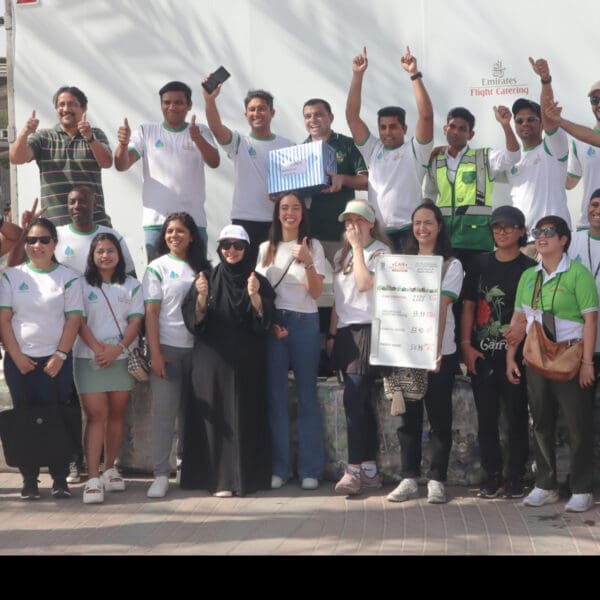 The World Café was held at EHL Hospitality Business School in July 2022. The event was an opportunity to exchange ideas on the impact of past crises and future preparedness, with 50 hospitality industry practitioners, researchers and economists from Western Switzerland. It was led by Professors Emmanuel Fragniere, Roland Schegg (HES-SO Valais-Wallis), Stefano Borzillo and Augusto Hasman (EHL Hospitality Business School).
The World Café was held at EHL Hospitality Business School in July 2022. The event was an opportunity to exchange ideas on the impact of past crises and future preparedness, with 50 hospitality industry practitioners, researchers and economists from Western Switzerland. It was led by Professors Emmanuel Fragniere, Roland Schegg (HES-SO Valais-Wallis), Stefano Borzillo and Augusto Hasman (EHL Hospitality Business School).
In this article we present the insider highlights and fresh ideas for surviving any future crises.
1. Empowering staff
Empowering staff means taking a long and hard look at all aspects from recruitment to job content, as well as examining how staff are treated and engaged with by managers. In the hotel industry, recruiting is often very rigorous and the requirements are high. Hoteliers need more “flexible” recruitment approaches and the removal of rigid standards to accommodate different situations.
A huge amount of work needs to be done to upgrade hotel jobs, especially difficult tasks such as room cleaning. Participants agreed that difficult tasks should not be outsourced because externals may not have the same commitment as direct employees. Hoteliers will probably also have to work with fewer employees but with more responsibilities and, on a positive note, higher salaries!
More team training opportunities and increasing the versatility of staff will be vital. Retaining and empowering employees requires providing better working conditions, flexibility and career choices. In parallel, for example, for employees who decide to leave, hoteliers should encourage them to return to their hotel in the future.
Hotel service is only possible if there is real teamwork and employee engagement. Hoteliers must therefore cultivate solidarity among the team members by valuing people from recruitment through employment and then ending their employment on a positive note. Hotel employers must also strive to know their employees better in the future.
Finally, participants objected to the concept of “uberization” of the hotel industry, i.e. allowing anyone to be a provider of services such as renting a car or providing a room in their apartment. They all agreed that this is contrary to the very nature of the hotel business and that it is better to invest in people. This runs contrary to the strategies of large hotel groups.
2. The human element
For hotel design in the future, it will be important to go back to the roots of the hotel industry and rethink the current business models to build greater resilience. It will be necessary to rethink the relationships between stakeholders and encourage better collaboration between owners and hotel groups.
In addition, there is a desire to focus on the human element and to refocus on the needs of the customer. Thus, favouring a holistic approach where the hotel becomes a destination on its own organising activities to attract tourists: wine discovery, food discovery, etc. The hotel of the future will have to constantly adapt to the needs of the customer and not the other way around as it was in the past.
It will be increasingly important to create flexible venues e.g., retirement homes, student residences, rental spaces for recurring children’s activities, such as dance, theater, Zumba, fitness, taekwondo, capoeira, etc. Hoteliers can use these activities to build customer loyalty (e.g., holiday parties, ceremonies, etc.). This leads to a fundamental need to develop immersive experiences and to put the experience at the heart of the hotel stay. Of course, hotels will need to continue to create a strong identity to differentiate from their competitors.
3. Technology as an enabler
Technology must support hotel activities, and not vice versa. Today, there is too much emphasis on data. Yet, there is a strong potential to use big data to anticipate crises and improve management through indicators and dashboards.
Hotels have gained experience in crisis management e.g., how to make costs profitable, operate with less staff. Thanks to this shared data, they will undoubtedly be able to react better to the next crisis. It is necessary to optimise hotel communications so that when a hotel innovates, they know what to say, how to say it and when – both to customers and employees.
However, digitalization is not valid for all customers. It is important for some segments of the hotel industry – like Events and Business travellers – but not for premium stays and experiences. Technology cannot replace the human touch. However, having high quality Wifi for the business clientele is seen as important. Post-COVID, the technical and technological requirements in terms of telecommuting and conferencing of business customers are higher.
Participants were convinced that even if the digitalization of events and meetings is more important than before, business travellers segments will continue to be a target because the need for people to meet physically remains essential. Participants expect a return to a pre-Covid ‘customer-mix’.
4. Sustainability is the future
Several themes relating to sustainability were covered, although directly as a concept by a younger participant. Themes such as a “less is more” or “degrowth” were raised. For hoteliers, sustainability is not only set of technical standards, it is important for a hotel’s culture. Sustainability is about prioritising local suppliers’ offers and services. It is important to send a clear message about the importance of sustainability.
The notion of slow travel is often evoked with the corollary to better consider the concept of mobility in the hotel offer in general. Thus, the participants are convinced that changes in the way of traveling will influence the length of stay (shorter or longer?) and the target markets. Rather than giving up on the environment, it is better to work on the “sustainability paradox”: attracting tourists from remote areas while being sustainable.
Constantly adapting
During the crisis, hoteliers had to work on building trust and resilience in their teams while maintaining relationships with guests. The crisis pushed hotels to rethink their medium and long term strategy and take the opportunity to make fundamental changes to their approach and ways of working. Feelings of solidarity, mutual aid and exchanges of experiences were born, allowing new collaborations and synergies between hotels and stakeholders, and this is expected to continue in the future.
Hoteliers need more “variable” recruitment styles and should eliminate certain standards to accommodate different situations. The hotel of the future will have to constantly adapt to the needs of the customer and not the other way around. Last but not least, hoteliers need to focus on the “sustainability paradox”: attracting tourists from remote areas while being sustainable.
To read the full report, click here.



















